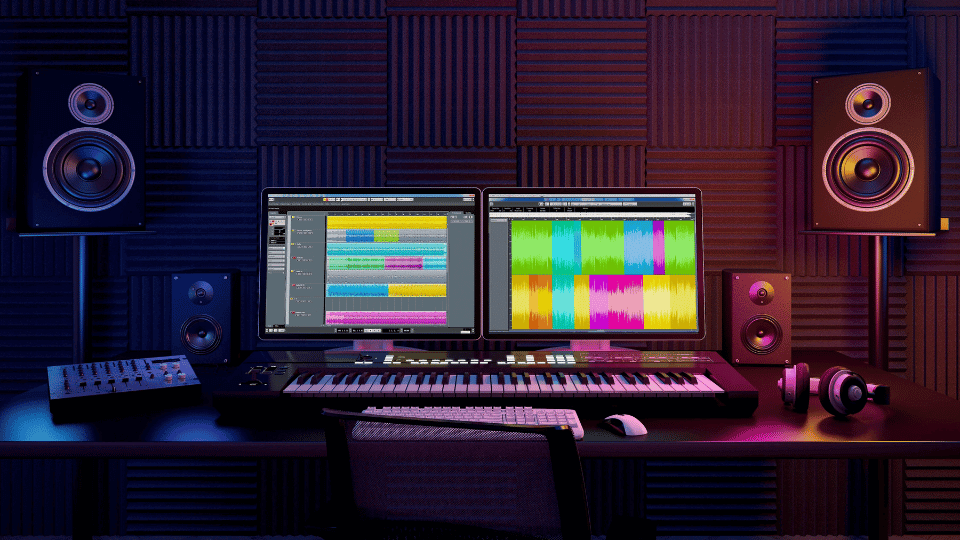1. AI and Machine Learning in Music Production
Advancements in artificial intelligence and machine learning have revolutionized the music production process. AI-powered tools can analyze music data, generate melodies, and even assist in mixing and mastering tracks. From creating personalized playlists to enhancing music recommendations, AI is reshaping how music is produced and consumed.
2. Virtual Reality (VR) and Augmented Reality (AR) Experiences
Virtual reality and augmented reality technologies are transforming the live music experience. VR concerts allow fans to immerse themselves in virtual venues and interact with their favorite artists in a whole new way. AR apps enable users to engage with interactive music content, such as 3D album covers and virtual band performances, enhancing the overall music experience.
3. Blockchain for Transparent Royalty Payments
Blockchain technology is revolutionizing the music industry by providing a transparent and secure platform for royalty payments and rights management. Smart contracts on the blockchain ensure that artists receive fair compensation for their work, while also streamlining the licensing process and reducing the risk of copyright infringement.
4. Live Streaming and Virtual Events
The rise of live streaming platforms has opened up new avenues for artists to connect with their fans and reach a global audience. Virtual concerts and live streaming events have become increasingly popular, offering a convenient and interactive way for music lovers to enjoy live performances from the comfort of their own homes.
5. Spatial Audio and Immersive Sound Experiences
Spatial audio technologies are enhancing the listening experience by creating immersive soundscapes that transport listeners into the heart of the music. From 3D audio formats to binaural recording techniques, spatial audio is revolutionizing how music is produced and consumed, offering a more engaging and lifelike listening experience.
6. Music Recommendation Algorithms
Personalized music recommendation algorithms are helping users discover new music based on their listening habits and preferences. By analyzing user data and behavior, these algorithms curate custom playlists and suggest relevant artists, genres, and songs, providing a tailored music discovery experience for listeners around the world.
7. Cloud-Based Collaboration Tools for Artists
Cloud-based collaboration tools are enabling artists to work together remotely and create music seamlessly across different locations. From virtual studios to online project management platforms, these tools facilitate real-time collaboration, file sharing, and feedback exchange, making it easier for artists to collaborate and produce music together.
8. Social Media Integration in Music Marketing
Social media platforms continue to play a crucial role in music marketing and promotion. Artists leverage social media channels to engage with fans, share updates, and promote their music to a wider audience. From Instagram Stories to TikTok challenges, social media integration has become a key strategy for connecting with fans and building a strong online presence.
9. Data Analytics for Music Industry Insights
Data analytics tools are providing valuable insights into listener behavior, music trends, and market dynamics. By analyzing streaming data, social media engagement metrics, and sales figures, music industry professionals can make informed decisions about marketing strategies, artist development, and audience targeting, leading to more effective and data-driven decision-making processes.
10. Voice-Controlled Music Streaming
The rise of voice-controlled devices and smart speakers has transformed how users interact with music streaming services. Voice commands enable users to play music, create playlists, and discover new artists hands-free, providing a convenient and intuitive way to enjoy music in the digital age. Voice-controlled music streaming is revolutionizing the way users engage with music content, offering a seamless and interactive listening experience.
Conclusion
As music tech trends continue to evolve and shape the future of the music industry, staying informed and adapting to new technologies will be essential for artists, producers, and industry professionals alike. By embracing innovation, exploring new tools and platforms, and leveraging technology to enhance creativity and connectivity, the music industry can continue to thrive in the digital age.
Key Takeaways:
- Social media and streaming platforms are essential for promoting tours and reaching global audiences.
- Email marketing helps drive ticket sales through direct, personalized communication.
- Video content and contests boost fan engagement and create excitement.
- Collaborating with local influencers and businesses expands reach in target cities.
- Geotargeted ads and interactive fan experiences increase engagement and ticket conversion.
To deepen your understanding of the music business and stay ahead of the curve, consider enrolling in the Yellowbrick Music Industry Essentials course and certificate program. Explore how these technologies can enhance your career and propel you to new heights in the ever-evolving music landscape.








